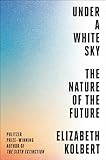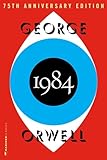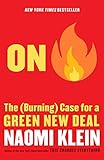Notes on reading as a spiritual practice: It is how I plug into something larger than myself, in a realm of pure mind where abstract squiggles of printed ink lines compose vistas and suggest resonant relations and patterns of humanity that were previously unknown to my conscious self. An experience that regularly approaches revelation. I read in a very specific way: always sitting up at a table in natural, morning light, red pen in hand. I torture my books. Dog-eared and marked up, my library is full of well-worn veterans, soggy with attention, respected, and fully wrung out of all their watery information. I savor the independent agency of the book, out in the wild where I become a hunter of sorts, on a game trail. As Carl Jung suggested, “people don’t have thoughts, thoughts have people,” and I have a relationship with this media that demands as much from me as I do of it. My library is not a collection of precious objects but of precious, thoughts-made-real. My library is not the safe-box repository for western culture. These are not sacred texts; this is digestible material that amounts to food. And so, too, does the practice require daily attention. It is a fitness that demands maintenance. I read about 10 books a month. Mostly nonfiction. I read real books. My disdain for monitors grows and the smell of paper and the gravity of the bound thing is an antidote to so much hot air that passes as narrative or composition in the farting world of social media. I read as a civic duty: at the community level, I am a strong advocate for the presence of local, independent bookstores, and on the historical level, I fear that literacy itself may exist within a bounded, temporal horizon and that by engaging the privilege of literature, we fight the encroaching darkness.
2021 was another wonderful year of reading and I have selected a dozen of my favorite books that I thoroughly enjoyed and am sure will, if they have not done so already, quickly and by any measure, each qualify as classics. By their nature, lists imply hierarchy and that is a conceit I will have to live with, although I am unprepared to measure the quality of this list from some arbitrary best-work, number one, that then descends on some aesthetic staircase of meager opinion. This is only a survey of work that each offered me a map, in its own way, to get me out of a maze I may not have even realized I was in.
12. Hitch-22: A Memoir by Christopher Hitchens (2010, Toronto: McCelland & Stewart Ltd.)
A man of such singular style and intellect, Christopher Hitchens was a nearly mythical force for justice as it can best be expressed through the vocation of the journalistic arts. From the philosophical to the political, this man’s telling of his own life’s story is often as funny as it is biting, as emotional as it is sobering, and as critical as it is self-aware. Hitchens was a paradox of a man, firmly rooted and cognizant of the time in which lived. His memoir is a deftly conceived portrait of the world in the framed space between the 20th and the 21st centuries with a wit that is as unique as it is universal.
 11. Under a White Sky: The Nature of the Future by Elizabeth Kolbert (2021, New York: Crown)
11. Under a White Sky: The Nature of the Future by Elizabeth Kolbert (2021, New York: Crown)
One of the great science writers of our age, Elizabeth Kolbert returns to offer another truly salient bit of clear thinking designed to serve civilization in a specific way. The simple premise of the book is to lay out examples of challenges caused within and across the biosphere that are arising or that have arisen from previously applied, so-called solutions to those problems. From cascading feedback loops inside of now-collapsing ecosystems where an alien species, for example, was introduced to solve for the presence of another alien species, exacerbating the problem, to the farcical idea that through geo-engineering we might mechanically solve for climate change and sidestep the causes of the crises, Kolbert simply and keenly lays out many pressing, global problems made by people trying to solve problems and we had better take heed.
 10. The Wizard and the Prophet: Two Remarkable Scientists and Their Dueling Visions to Shape Tomorrow’s World by Charles C. Mann (2018, New York: Vintage Books)
10. The Wizard and the Prophet: Two Remarkable Scientists and Their Dueling Visions to Shape Tomorrow’s World by Charles C. Mann (2018, New York: Vintage Books)
I did not expect to enjoy this book as much as I did. By describing the ideological conflict between two scientists who you have never heard of but were keenly important to shaping how we think about environmental issues today, Charles Mann presents a juicy story full of 20th-century intrigue and even suspense. By presenting historical context for the idea of techno-fixes (the so-called wizarding thought of the book’s title) as opposed to precautionary doom-saying (wizarding’s prophesying counterview), we deliberate between what the author calls the hard path and the soft path. These two ethical postures towards ecological well-being and humanity’s responsibility to it are direly important to not only consider but to get right, and with more than a century of data that is here well presented, we may be armed with the necessary tools to do so.
 09. We are the Land: A History of Native California by Damon B. Akins and William J. Bauer Jr. (2021, Oakland: University of California Press)
09. We are the Land: A History of Native California by Damon B. Akins and William J. Bauer Jr. (2021, Oakland: University of California Press)
Recognizing and reckoning with the two truths of California’s modern day indigenous sovereignties is key to not only realizing racial justice but environmental justice in the 21st century. Those two truths are 1) that a genocide did happen here, and 2) it was unsuccessful as the vital world of native Californian culture and community is still alive and very much present and deserves maximum representation. Akins and Bauer present a new, unflinching and yet powerfully sensitive account of the past 500 years of colonial violence that concludes with a moving testament of self-determination and revitalization.
 08. 1984 by George Orwell (originally 1949 by Harcourt Inc., 160th printing of the mass-market edition, 2021, New York: Signet Classics)
08. 1984 by George Orwell (originally 1949 by Harcourt Inc., 160th printing of the mass-market edition, 2021, New York: Signet Classics)
I was never assigned this book in school and I am glad that now, approaching 50 years old, I have scoured it for the very first time. The adjective Orwellian is thrown around and so often, I suspect, that those who use the word, don’t really understand it. More so even than the unparalleled insight into the nature of authoritarian control, I found a story full of rich symbolism, lovingly crafted prose, and delicate observations. In truth, we all carry around Big Brother in our hearts, and dystopia is a perspective on reality more than it is anything objectively real. Perhaps the biggest insight of Orwellian thought is that the road to avoiding such a reality is laid out in a symbolic reality that is actually a well-trod path, full of recognizable patterns, warnings that exist outside of any specific history.
 07. Unsolaced: Along the Way to All That Is by Gretel Ehrlich (2021, New York: Pantheon Books)
07. Unsolaced: Along the Way to All That Is by Gretel Ehrlich (2021, New York: Pantheon Books)
Unsolaced is not a word. It is better than a word. Gretel Ehrlich crafts languages as a metalsmith molds raw ingots of ore toward her personal utility. In this, her 14th book, the veteran writer of the West seems to revisit all of her previous work to present a shining diamond of semi-autobiographic, always-poetic wonder, as open as the Montana range that is her first love. This book is a cup of black coffee followed by shot of bourbon. It’ll keep you up all night with its strange song that is peaceful and expansive, but also always unsettled and searching.
 06. Foraged Flora: A Year of Gathering and Arranging Wild Plants and Flowers by Louesa Roebuck and Sarah Lonsdale (2016, Berkeley: Ten Speed Press)
06. Foraged Flora: A Year of Gathering and Arranging Wild Plants and Flowers by Louesa Roebuck and Sarah Lonsdale (2016, Berkeley: Ten Speed Press)
This is not an art book like any other. This is not a coffee table book like any other. There is a universe of beauty laid out here that amounts to something new and ancient, full of love and life (but also of death), that is comfortable to sit with and do nothing, and yet reminds me of everything. It is Zen but it is rooted in the world of form and growth, reveling in both. It is fine with its contradictions. It thrives there, dynamic and at times angry. This is not a book about flower decoration, this is a book about love, and it can hurt and it can make all things bare their truth. This is a book about witnessing reality and forcing one’s self to be okay with what happens next.
 05. Regeneration: Ending the Climate Crisis in One Generation\ by Paul Hawken (2021, New York: Penguin Books)
05. Regeneration: Ending the Climate Crisis in One Generation\ by Paul Hawken (2021, New York: Penguin Books)
I’ve read a lot of Paul Hawken and this book is what all the others have been leading up to. If there was one book published this year that should be taught in all the schools and free copies of which should be mailed to every house like the phone book used to be, this is it. It is all laid out here. It is the IPCC report with actionable line-items like a bill of goods, or a recipe for the very best kind of cake—a cake that can protect the world from itself. Reading it is to rejoice in the unity of knowledge and to realize that to be forewarned is to be forearmed. Studying this book is studying the human mind’s collective ability for pattern recognition and problem solving. These are our greatest evolutionarily endowed gifts that together have the potential to transform any challenge, regardless of scale into an opportunity.
 04. On Fire: The (Burning) Case for a Green New Deal by Naomi Klein (2019, New York: Simon & Schuster)
04. On Fire: The (Burning) Case for a Green New Deal by Naomi Klein (2019, New York: Simon & Schuster)
I have so many friends who are wearing themselves out, riddled with climate anxiety. Oh, who am I kidding? I regularly do that to myself. One respite that I take is turning to qualified, experienced, and expert journalists who I trust to tell me how it is and, more importantly, how it came to be. Naomi Klein may be the world’s greatest climate journalist, and this book does more than what its title claims. The Green New Deal is more that a political blink that happened a couple of years ago, it is a deep groundswell that will be rebranded and reincarnated again and is already, in so many ways, being enacted now, simply because our choices are running thin. From the front lines of standing witness to the crisis, Klein is careful to offer a prescription of self-care, so that we, our individual selves, might survive our own, private climate revolution.
 03. Deep Hanging Out: Wanderings and Wonderment in Native California by Malcolm Margolin (2021, Berkeley: Heyday)
03. Deep Hanging Out: Wanderings and Wonderment in Native California by Malcolm Margolin (2021, Berkeley: Heyday)
I first read the The Ohlone Way, Malcolm Margolin’s classic account of indigenous, human culture around the San Francisco Bay Area, when I was a teenager and it sent me on a life trajectory, orienting me in a manner that I maintain to this day, so many decades later. This book, in many ways, is a follow up to that classic that was first published nearly 50 years ago. The collection of writings includes many personal reflections to that original work and upgrades the author’s own thinking toward native California culture in a contemporary context. There is a soft prescience at work here, hidden in the plain writing and the straightforward and calm presentation, about an arc of justice that emerges with fair representation.
 02. The Green New Deal: Why the Fossil Fuel Civilization Will Collapse by 2028, and the Bold Economic Plan to Save Life on Earth by Jeremy Rikfin (2020, New York: St. Martin’s Griffin)
02. The Green New Deal: Why the Fossil Fuel Civilization Will Collapse by 2028, and the Bold Economic Plan to Save Life on Earth by Jeremy Rikfin (2020, New York: St. Martin’s Griffin)
Often subtitles for books are written by the publisher and the authors rarely get a say in them, and I wonder if that is the case here. This book is not about the collapse of our civilization but a calm and metered, economic analysis of market forces that are already being brought to bare on what Rifkin calls the third, Industrial revolution, which is built on big data informing a new logistics-based infrastructure, an energy internet of sustainably acquired and distributed electric power, and a communications revolution. This book is a must read, full of sound principles, clearly laid out and time tested, spiked with a good dose of common sense. I would’ve titled the book “An Internet of Things: The Economic Reality of the Twenty-First Century and the Inevitable Emergence of a New and Sustainable Industrial Revolution.”
 01. The World-Ending Fire: The Essential Wendell Berry, Selected and with an Introduction by Paul Kingsnorth (2017, Berkeley: Counterpoint)
01. The World-Ending Fire: The Essential Wendell Berry, Selected and with an Introduction by Paul Kingsnorth (2017, Berkeley: Counterpoint)
Wendell Berry is on my very short list of the world’s most important thinkers and the sole occupant in a subsection of genius vocations called Agrarian Philosophy. What does it mean to tend the land with great skill? What does it mean to solve for pattern when faced with an ecological challenge? What does a reciprocal relationship with nature mean, and how can that relationship reinforce nature’s own proclivity towards regeneration and abundance? As Wendell Berry plainly lays out in approachable (and apparently written sans computer, in pencil drafted) essay after essay, the answer to these questions and many others is clear: everything.
More from A Year in Reading 2021 (opens in a new tab)
Don’t miss: A Year in Reading 2020, 2019, 2018, 2017, 2016, 2015, 2014, 2013, 2012, 2011, 2010, 2009, 2008, 2007, 2006, 2005










